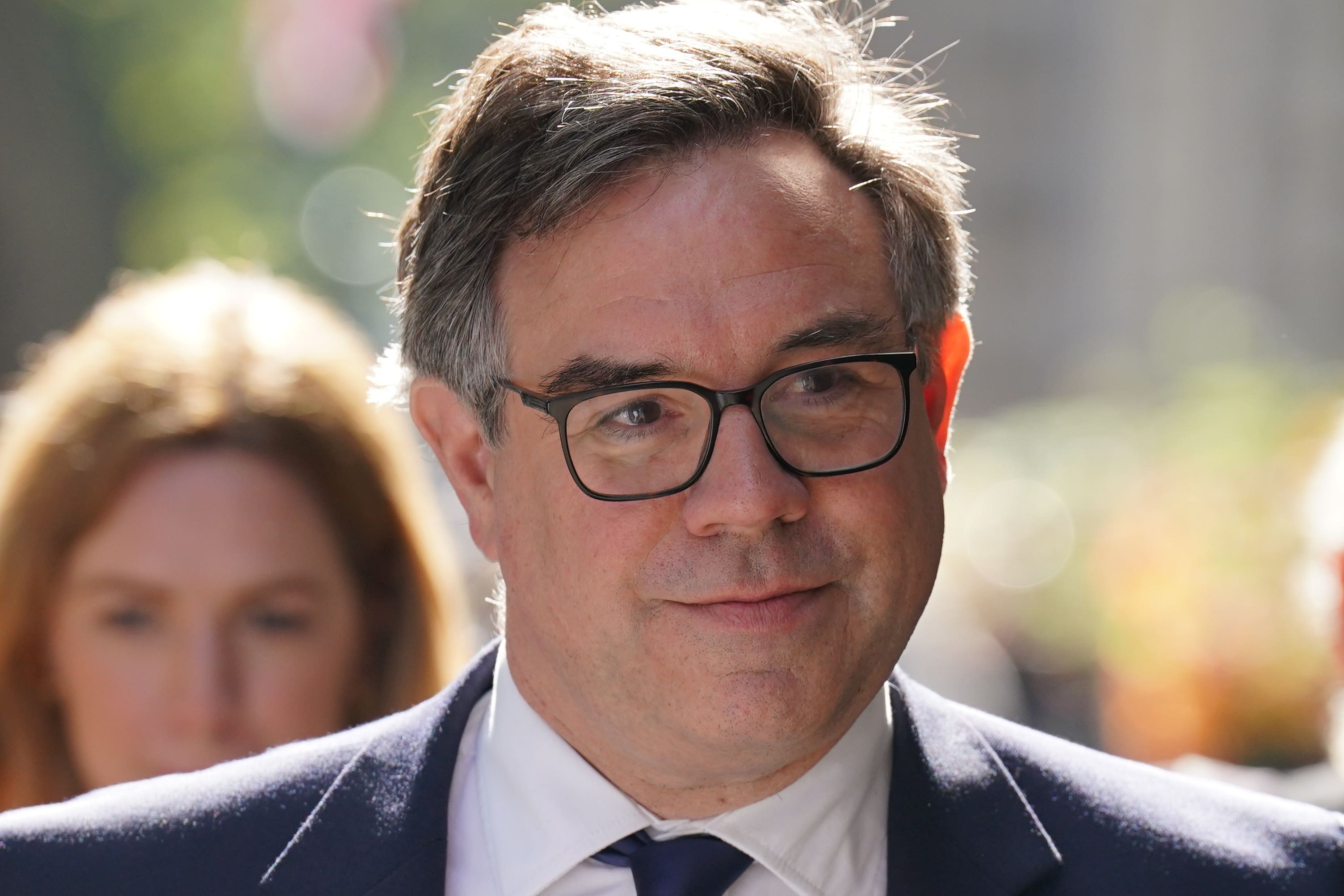Infected Blood Inquiry: Minister challenged over slow compensation for victims
The Government has been accused of dragging its heels over compensation payments.

Your support helps us to tell the story
From reproductive rights to climate change to Big Tech, The Independent is on the ground when the story is developing. Whether it's investigating the financials of Elon Musk's pro-Trump PAC or producing our latest documentary, 'The A Word', which shines a light on the American women fighting for reproductive rights, we know how important it is to parse out the facts from the messaging.
At such a critical moment in US history, we need reporters on the ground. Your donation allows us to keep sending journalists to speak to both sides of the story.
The Independent is trusted by Americans across the entire political spectrum. And unlike many other quality news outlets, we choose not to lock Americans out of our reporting and analysis with paywalls. We believe quality journalism should be available to everyone, paid for by those who can afford it.
Your support makes all the difference.It is “difficult to formulate” a Government response over extending a compensation scheme for victims of the NHS infected blood scandal, a minister has said amid complaints the Government is dragging its heels over payments.
Paymaster general Jeremy Quin confirmed the Government will wait until after the inquiry’s final report, expected in the autumn, before announcing its compensation plan.
Giving evidence to the Infected Blood Inquiry on Tuesday, he insisted ministers “absolutely” understand that time is of the essence when questioned about the slow progress towards a scheme.
He was asked to justify claims that the Government is working at pace, given that its commissioned report on the issue was published in June 2022 and the inquiry chairman recommended in April that an interim compensation scheme be widened.
Inquiry counsel Jenni Richards KC said: “We are over three months on from the delivery of this inquiry’s report with its recommendation for compensation and those who are infected and affected are at present no closer to knowing what the Government intends to do.”
I recognise that this is not just over weeks or months. It’s been decades which people have been waiting for redress
She asked Mr Quin whether it is “good enough” that the Government has still “given no indication” of its response.
The Cabinet Office minister replied: “Given the scandal and the enormity of what happened, and the impact that’s had on so many people’s lives, there are no good answers in terms of producing redress and nothing can in any way compensate.
“What I want to see and what the Government wants to see is a proper resolution to this.
“It is difficult to formulate and conclude a response. I recognise that. But I’m absolutely determined that we do create a fair and equitable settlement.”
The “objective remains to be able to respond as swiftly as possible after the final report”, the Tory MP said, but added he could not give a date.
He said the “building blocks” to make “some significant decisions” were now in place, but that there was still “work to be done for us to be ready for the final report”.
“In practical terms, there is still work to be done and decisions to be made.
“So I would not wish the inquiry to think that everything is ready, we’re just sitting, waiting for the final report.”
The inquiry was established in 2017 to examine how thousands of patients in the UK were infected with HIV and hepatitis C through contaminated blood products in the 1970s and 1980s.
Thousands died in what has been labelled the worst treatment disaster in the history of the NHS.
Inquiry chairman Sir Brian Langstaff has said that an interim compensation scheme should be widened so more people – including orphaned children and parents who lost children – could be compensated.
Sir Brian said in April that he was taking the unusual step of publishing the recommendation ahead of the publication of the full report into the scandal in the autumn so that victims would not face any more delays.
Under the initial scheme, victims themselves, or bereaved partners, can receive an interim payment of about £100,000.
The inquiry has recommended the Government establish an arms-length compensation body now and definitely before the final report in the autumn.
Prime Minister Rishi Sunak has previously said the Government will wait for the full report before considering whether to extend the compensation scheme for victims.
Asked whether the Government understood that time is of the essence, Mr Quin said: “I absolutely believe it does. And I absolutely get it.
“It’s a scandal that shouldn’t have happened and I recognise that this is not just over weeks or months. It’s been decades which people have been waiting for redress.”
Pressed on whether ministerial meetings should have happened before he took up the role of paymaster general – the minister responsible for the inquiry – last October, he said “political turbulence” had affected the work.
Mr Quin also promised “transparency and openness” from the Government.
“Huge wrongs have been done and the sooner this can be resolved, and the sooner that a Government response can be made, the better,” the Cabinet Office minister said.
“I’ve been very keen from when I’ve taken up this post to be as open as I can be, in terms of the work that we’re doing and the work that we’re undertaking.”
Mr Sunak will give evidence to the inquiry on Wednesday and Chancellor and former health secretary Jeremy Hunt is due to appear on Friday.